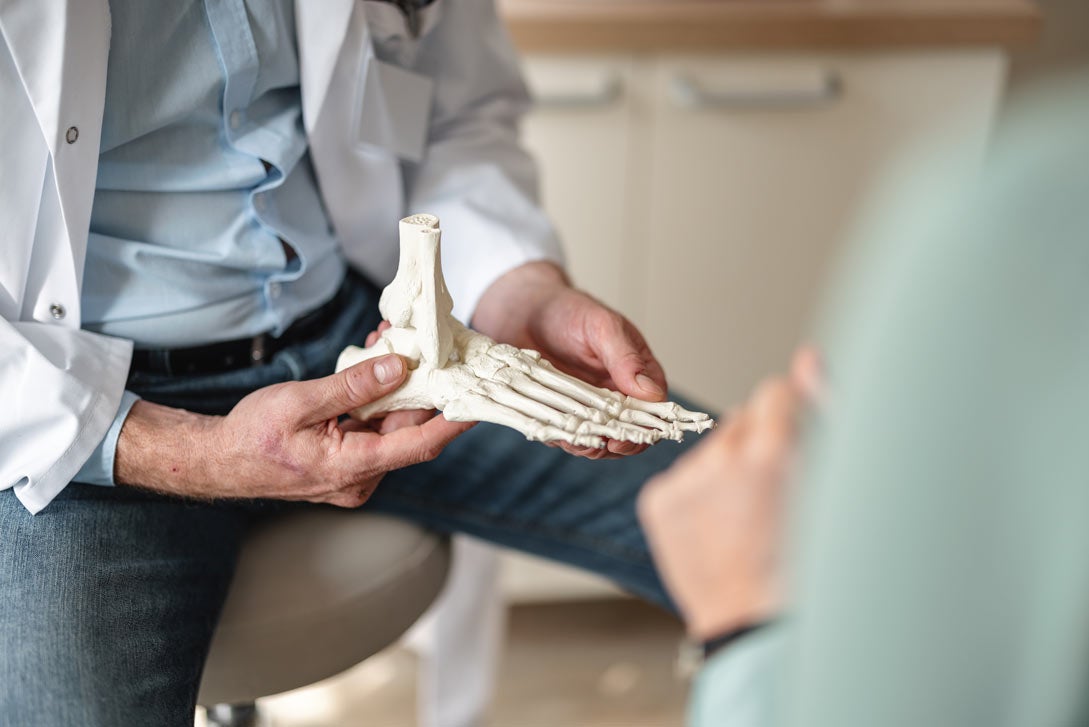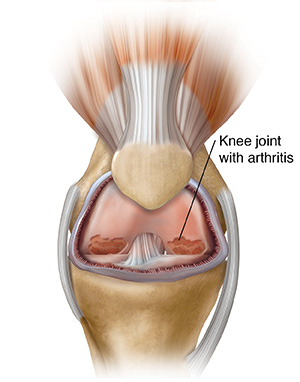Rheumatoid arthritis (RA) is a disease that affects the lining of joints. This lining is called the synovium. RA causes pain, swelling, stiffness, and decreased flexibility of the joints. If not treated, joint damage and disability may occur. This disease happens most often in young-adult to middle-age women.
What causes RA?
RA is an autoimmune disorder. The immune system normally protects the body. With an autoimmune disorder, it attacks the body and causes harm. In RA, the immune system attacks the joint lining. The reason for this is not known. Researchers think it's a combination of genes (inherited from parents) and environment (such as viruses or bacteria). People who smoke or are overweight have an increased risk of developing RA.
What are the symptoms of RA?
Rheumatoid arthritis can affect most joints. The hands, wrists, elbows, knees, and balls of the feet are common sites. This disease often affects the same joint on both sides of the body. Symptoms may include:
-
Sore, swollen, inflamed joints. They may look red and feel warm.
-
Stiff joints. Too much rest or using a joint too much can make stiffness worse. Morning stiffness that lasts more than 30 minutes is very common.
-
Joints that have lost normal shape and motion. Joints may get larger. And it is harder to move the joints in a normal way. These deformities can interfere with daily activities, such as brushing your hair, buttoning clothes, or bending your knees.
-
Fatigue. You may feel tired a lot.
-
Loss of appetite.
-
Repeated low-grade fever.
How is RA diagnosed?
Your healthcare provider will ask you about your health history and current symptoms. They will examine your joints. You will have blood tests and X-rays. Your provider will likely advise that you see a rheumatologist. This is a healthcare provider who has received specialized training on musculoskeletal disease and autoimmune disorders.
Featured in



